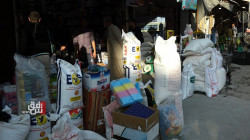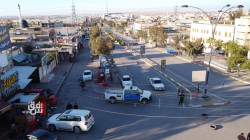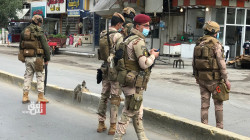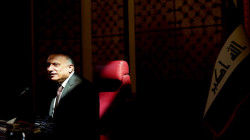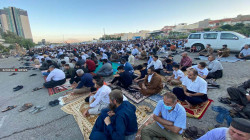Iraqi meat price surge: climate change, soaring production costs, and inadequate livestock management fuel crisis
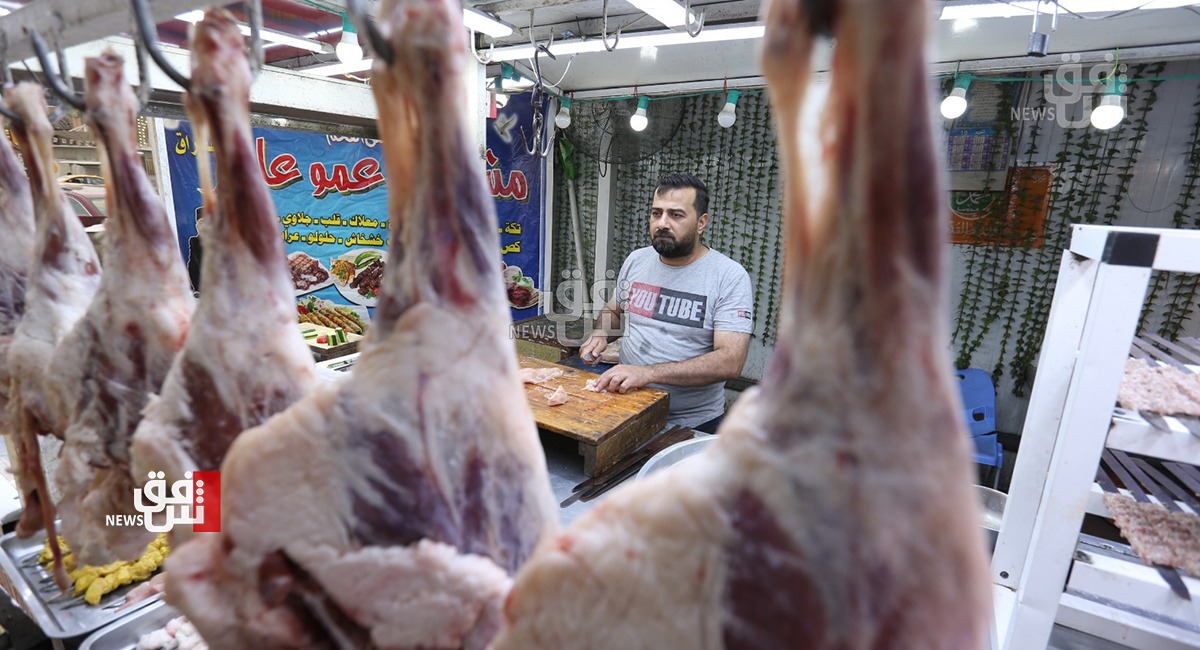
Shafaq News/ A conspicuous upswing in red and white meat prices has been observed in Iraqi local markets since the onset of 2023, with further amplification during Ramadan. Experts primarily attribute this escalation to climate change, the dinar depreciation, and the substandard stewardship of the livestock sector by pertinent ministries.
As per local accounts, fish prices have risen to 8,000 dinars per kilogram from 6,000 dinars, while chicken rates have ascended from 3,500 dinars to 4,500 dinars per kilogram. Red meat has witnessed a substantial increment, soaring from 15,000 dinars to 20,000 dinars per kilogram.
These augmenting meat prices during Ramadan have incited ire among citizens who grapple with the affordability of even half a kilogram of meat. Abu Hussein, hailing from the governorate of Karbala, decried the annual price escalation during Ramadan, querying whether it represents "the month of goodness or the month of skyrocketing prices."
The public has reproached poultry, livestock, and fish proprietors for establishing prices capriciously, ascribing the elevated prices to increasing feed expenses, market vicissitudes, and the repercussions of the dinar depreciation, ultimately holding the government accountable.
Conversely, Razan Saleh, a member of the parliamentary agriculture committee, posits that the heightened meat prices are ephemeral and will revert to normalcy as demand abates. Saleh exhorted the government, particularly the Ministry of Agriculture, to adopt measures bolstering the livestock sector, given its crucial role to the national economy.
Saleh expounded to Shafaq News Agency that such initiatives ought to encompass regulating the disequilibrium between supply and demand, managing meat prices in the markets, procuring fodder for breeders at subsidized prices, and creating pastures and natural reserves for grazing.
In the meantime, Iyad Talbi, the head of the Association of Fish Producers, castigated the Ministry of Water Resources for the deplorable state of fish wealth. Talbi asserted that the ministry not only curtailed water allotments for fish ponds but also promulgated a decision to shutter fish farms until July due to water paucity. He emphasized the necessity of compensating fish farm proprietors in the event of closure, as these enterprises sustain thousands of families and bolster Iraq's economy.
Hashem Kamash, a board member of the Iraqi Association for the Care of Poultry Producers, ascribed the surge in poultry prices to the incompetence of authorities overseeing the sector, primarily the Ministry of Agriculture. Kamash observed that the poultry sector has languished in neglect since 2003, notwithstanding its import for the Iraqi economy.
Kamash contended that the absence of control over border crossings has inundated the market with poultry products, encompassing expired chicken from indeterminate sources. These items are smuggled into Iraq and repackaged with counterfeit production dates, culminating in the shutdown of most Iraqi slaughterhouses due to their inability to rival imported goods.
He also cited the paucity of supply, the reluctance of many to rear poultry, and the heightened demand for chickens during Ramadan as factors contributing to the increased live poultry prices. Moreover, the dearth of live chicken imports from the Kurdistan Region has exacerbated the predicament.
Despite the lucrative profit margin of current prices, Kamash opines that they do not meet the aspirations of project owners, considering the considerable capital investment and risk inherent in poultry farming. He added that burgeoning production costs, spurred by the escalation in feed, chicks, medicines, and vaccine prices, as well as the dinar falls, have further aggravated the situation.
Economist Khattab al-Dhamen ascribed the upsurge in red meat prices to an imbalance in supply and demand, engendered by Iraq's drought and diminishing rainfall, which has curtailed the nation's red meat production. Furthermore, al-Dhamen highlighted that the recent significant increase in wheat and barley feed costs, due to the rising dollar exchange rate and a global inflationary wave, has adversely affected the productivity of livestock in Iraq.
Regarding the demand imbalance, al-Dhamen elucidated that a growing and continuous demand for meat is driven by Iraq's expanding population and purchasing power, especially during Ramadan. Consequently, the interplay of these repercussions, factors, and their interactions have precipitated the price escalation.
In addressing the government's role in tackling this crisis, which undermines the food security of Iraqi families and contributes to the rise in poverty rates, al-Dhamen called on the government to "provide farmers and livestock breeders with fodder and veterinary supplies at subsidized prices to augment the productivity of Iraqi livestock, and to supply the Iraqi markets with imported red meat in a manner that does not impair national production."
Al-Dhamen further suggested that "the Ministry of Trade, in collaboration with the Ministry of Agriculture and other government agencies in customs and border crossings, should supply Iraqi markets with red meat from reputable sources, given the decline in the productivity of Iraqi livestock and the surge in demand, which have led to higher prices."
